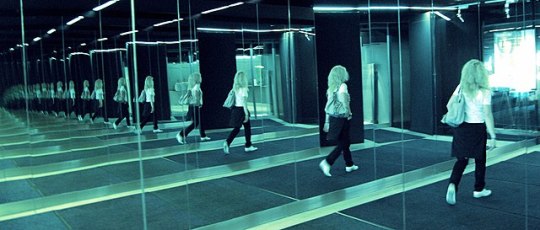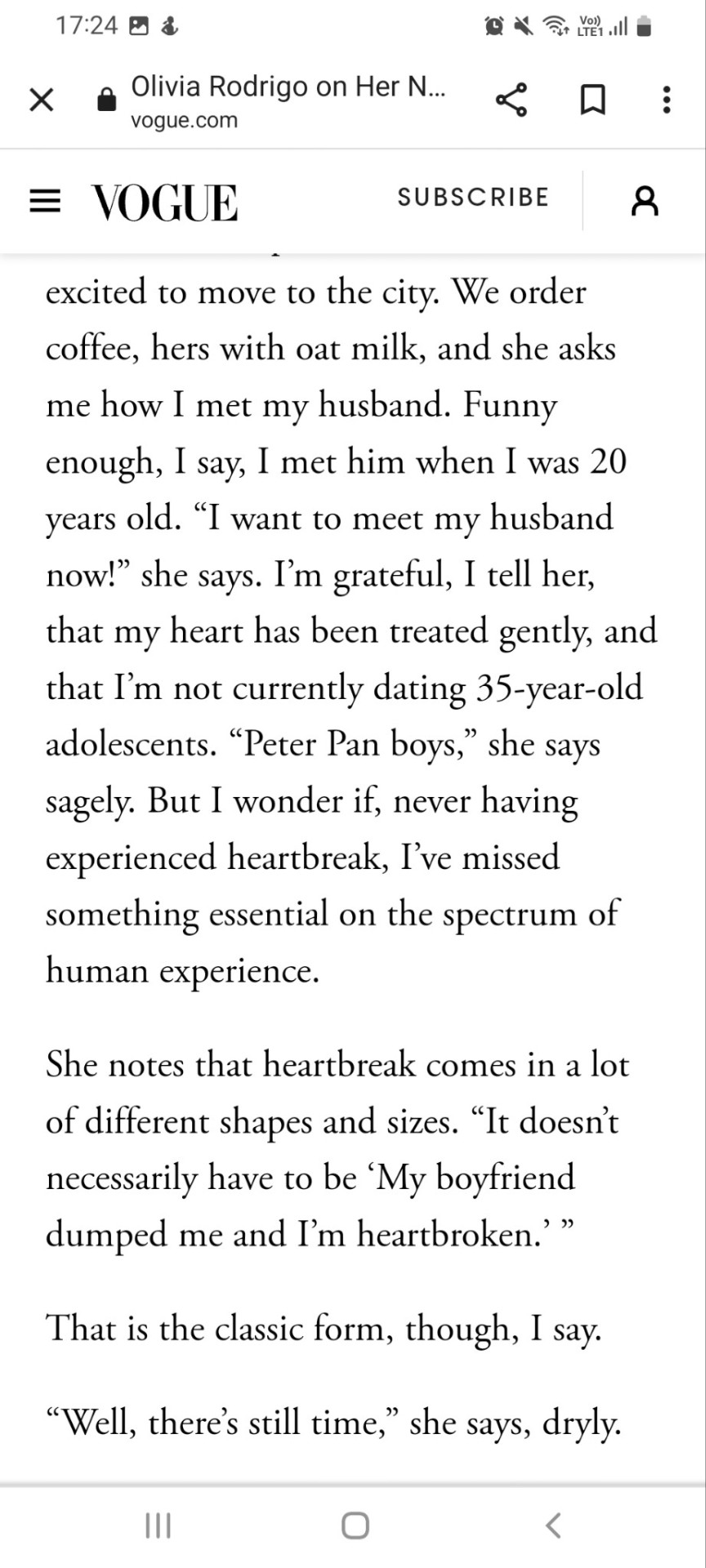#Jia Tolentino
Explore tagged Tumblr posts
Text
[Simone de Beauvoir] describes the definitive thrill and sorrow of female adolescence—the realization that your body, and what people will demand of it, will determine your adult life. “If the young girl at about this stage frequently develops a neurotic condition,” de Beauvoir writes, “it is because she feels defenseless before a dull fatality that condemns her to unimaginable trials; her femininity means in her eyes sickness and suffering and death, and she is obsessed with this fate.”
Jia Tolentino, Trick Mirror: Reflections on Self-Delusion
380 notes
·
View notes
Text
"The Trumpists believe that the left wants women to be Plan B-gobbling dilettantes in their youth; dick-stomping, corporate drones in early adulthood; lonely, angry spinsters who approach forty in a mania for egg-freezing or emasculation. (Soon afterward, the woman problem becomes neutralized by the relative invisibility of the “postmenopausal female.”) The libs believe that conservatives want women to spend their youth in training to attract, submit to, and please men, suppressing all other forms of human potential for one that revolves around dress-up, smiling self-imprisonment, and wiping asses, both literally and emotionally.
The chasm between young men and women in this year’s vote is the chasm between these two stories. It’s men fearing women’s enthrallment to independence at the expense of their own centrality, and women fearing their subjugation to men at the expense of their lives. The difference—and this is always the difference—is about volition. Men who voted for Trump fear what women might actually want; women who voted for Harris fear what will be done to them against their will. In the imaginary world ruled by angry lesbian socialist girlbosses, there is absolutely nothing to stop you from being a barefoot, pregnant homemaker at twenty-four if you’d like to be one. In the increasingly non-hypothetical world ruled by far-right Trumpists, the blissful servitude of women must be insured by removing their control over their bodies, and ideally, actually, by removing them from the public sphere altogether."
—Jia Tolentino, "How America embraced gender war", The New Yorker
20 notes
·
View notes
Text
EZRA KLEIN: I think there’s so much tension and energy and guilt in this connection between the sacred and the mundane, the sense that you often should be feeling. You are so close to this transcendent experience. You are doing the most meaningful thing, and you are so bored or so tired, or you so want to be somewhere else. What do you do when what you are trying to do is escape the thing you should be paying attention to? [...] To be alive is also holy. To be alive, to be able to experience this at any moment, right? The possibility of connection, of experience, of just being in this world, it should be so overwhelming. And instead, I am staring at my phone.
— from his conversation with Jia Tolentino: "On Children, Meaning, Media and Psychedelics"
21 notes
·
View notes
Note
I remember everyone was talking about jia tolentino’s instagram face essay as a companion piece to the everyone is beautiful but nobody is horny essay. Have you read it/do you have thoughts on it? Thanks!
i think one of jia tolentino's problems as a writer is that she often seems genuinely unaware of how limited her scope is and how it hampers her efforts to develop any social commentary applicable beyond her socioeconomic milieu. so for example, afaik she's right that a certain plastic surgery look has been popular in recent years with the instagram influencer / model / LA set (w/ some changes over time, like the even more recent popularity of buccal fat removal or that cat-eye facelift situation). but she talks about this as though it's like a universal condition of Modern Womanhood, even after pointing out that it costs a fuckload of money to actually have these procedures done lol. like it's the ig version of how like, legacy media journos are always banging on about what the twitterati think about the latest hbo show. these are like, tiny slices of the population who assume their own experiences are universal because they don't think poor and working class people count the same as them. it's almost funny. anyway i think the most interesting part of the instagram face essay is when she points out that the face in question is often aiming to be white, yet ambiguously 'ethnic'—much to unpack here about beauty standards and the role they play in discourses of racialisation, as well as how they're then shaped by the resultant 'scientific' ideas about phenotypic populations and racial categories. i wish the essay had said more about this. instead it felt like it got stuck on the idea that bodies under neoliberal capitalism are 'assets' to be 'improved' upon—which like, true, but not an entirely new phenomenon and it wasn't an analysis that had much to actually say about capitalism or biopolitics. this is connected to the above issue imo because fundamentally tolentino Doesn't Like Capitalism but also doesn't have much to say about it beyond how it makes Women (a coherent category...) feel.
55 notes
·
View notes
Text

From Jia Tolentino's "Trick Mirror"
3 notes
·
View notes
Text
For a long time, there was no way for a woman to be both free and good.
Jia Tolentino, Trick Mirror
7 notes
·
View notes
Text
5 Great Essays by Jia Tolentino

The Tyranny of the Ideal Woman by Jia Tolentino - How we became suckers for the hard labor of self-optimization...
Somewhere Worse by Jia Tolentino - We are entering an era not just of unsafe abortions but of the widespread criminalization of pregnancy
The Age of Instagram Face by Jia Tolentino - How social media, FaceTune, and plastic surgery created a single, cyborgian look
Losing Religion and Finding Ecstasy in Houston by Jia Tolentino - Christianity formed my deepest instincts, and I have been walking away from it for half my life
No Offense by Jia Tolentino - The offense is supposed to go somewhere and do something. Of course, in practice, that’s not what happens at all
18 notes
·
View notes
Text
The words of the incredibly wise writer Jia Tolentino. Each of us has the natural inclination to craft chains of connection and support - we just have to find the space for it to happen when every moment of our time is monetized/commodified. Make time to grow. Make time to caretake.
This quote is part of an interview on the Burn After Reading substack.

3 notes
·
View notes
Text


💤🌞
3 notes
·
View notes
Quote
More than twenty years ago, the writer Michael Goldhaber observed, in Wired, that the Internet drowns its users in information while constantly increasing information production; this makes attention a scarce and desirable resource—the “natural economy of cyberspace.” Goldhaber speculated that, when the “attention economy” had matured, nearly everyone would have her own Web site, and he warned readers that “increasing demand for our limited attention will keep us from reflecting, or thinking deeply (let alone enjoying leisure).” In other words, he roughly outlined the social-media age. Social-media companies monetize everyday selfhood: our preferences and personal data are tracked and sold to advertisers; our relationships are framed as potentially profitable conduits; we continually capture one another’s lucrative attention by performing some version of who we think we are. Over time, we have absorbed these terms and conditions: we might retain very little of the value we create, but we have allowed social media to make us feel valuable. These platforms encourage compulsive use by offering forms of social approval—likes on Facebook and Instagram, retweets on Twitter—that are intermittent and unpredictable, as though you’re playing a slot machine that tells you whether or not people love you. Dependency, eventually, assumes its own logic.
Jia Tolentino, What It Takes To Put Your Phone Away
33 notes
·
View notes
Text

Oh mood
Highlighted text reads : " most of my life is inextricable from the internet, and it's mazes of incessant forced connection - this feverish, electric, unlivable hell"
#image id in alt#ghost.reads#haunted.books#i will have to decide on a tag#look at my pastel highlighters so pretty#trick mirror#Jia Tolentino#quotes#books#bookblr#readblr
12 notes
·
View notes
Text
Women are genuinely trapped at the intersection of capitalism and patriarchy—two systems that, at their extremes, ensure that individual success comes at the expense of collective morality.
— Jia Tolentino, Trick Mirror
#trick mirror#jia tolentino#essays#quotes#literary quotes#literature#writing#books#book#spilled ink#prose#thoughts#lit#love#relationship#asian american#asian lit#asian literature#quote of the day#reverie#reverie quotes#quote#book quote#book quotes#important quote#important quotes#inspiring quote#inspiring quotes#beautiful quote#beautiful quotes
15 notes
·
View notes
Text
A model has to figure out a way to appeal to an unseen, changing audience; she has to understand how to silently invite their desires and needs onto her under pressure, she has to radiate perfect composure and control.
-- Jia Tolentino
5 notes
·
View notes
Text
To communicate an identity requires some degree of self-delusion.
Jia Tolentino, Trick Mirror
4 notes
·
View notes
Text

Also had to reread this Jia piece from a couple of months ago... well there's still time lmao
8 notes
·
View notes
